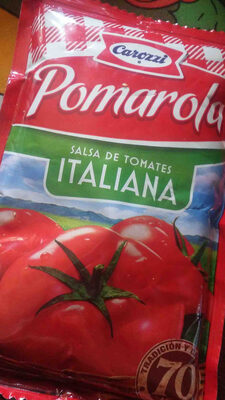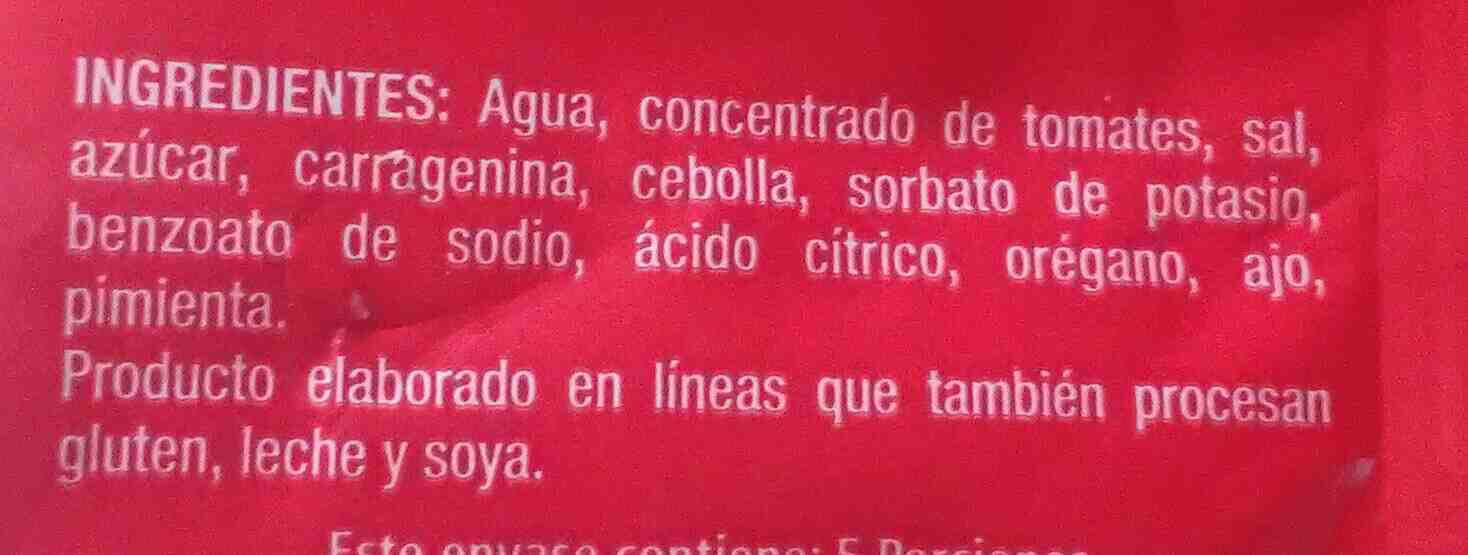salsa de tomates pomarola carozzi - 200 g / 7.05 oz
This product page is not complete. You can help to complete it by editing it and adding more data from the photos we have, or by taking more photos using the app for Android or iPhone/iPad. Thank you!
×
Barcode: 7802575353047 (EAN / EAN-13)
Quantity: 200 g / 7.05 oz
Categories: Condiments, Sauces, Tomato sauces
Origin of ingredients: Chile
Manufacturing or processing places: Teno, Región del Maule, Chile
Traceability code: SSA 77/1990, 040503060047, RE 01923
Stores: Ketal, IC Norte, Fidalga
Countries where sold: Bolivia, Chile, Cuba, Dominican Republic, Ecuador, Honduras, Paraguay
Matching with your preferences
Environment
Carbon footprint
Packaging
Transportation
Report a problem
Data sources
Product added on by veganeamos
Last edit of product page on by 5m4u9.
Product page also edited by openfoodfacts-contributors.
If the data is incomplete or incorrect, you can complete or correct it by editing this page.








